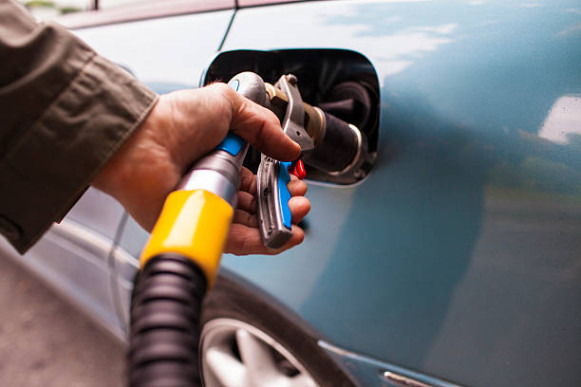- 4206
- 3
Sharing Ideas and Updates on LPG in Nigeria and related information to enable effective collaboration within the LPG Value Chain
Assessing The Viability Of Autogas-Powered Vehicles At 300,000 Naira For Vehicle Conversion.

The
removal of fuel subsidies in Nigeria has led to a significant increase in fuel
prices, causing concerns about the financial burden on Nigerian citizens. We
delve into the viability of Autogas-powered vehicles in today's Nigerian
economy, taking into consideration the impact of fuel subsidy removal and the
financial capability of Nigerian citizens. We have a prior blog post which asserts the possibility of
LPG (Autogas) being a solution to subsidy removal, this is a reply to said
assertion.
Financial Implications of Fuel Subsidy Removal
The removal of fuel subsidies has resulted in higher fuel prices, which have directly affected the cost of transportation. As a consequence, many Nigerians are seeking cost-effective alternatives. Autogas, with its potential for lower fuel costs, has emerged as a viable option. However, the financial capability of Nigerian citizens to afford Autogas-powered vehicles and their associated infrastructure requires careful examination.
Initial Investment and Vehicle Conversion
The viability of Autogas-powered vehicles depends on the initial investment required for vehicle conversion and the availability of affordable conversion kits. The cost of converting existing vehicles or purchasing new ones specifically designed for Autogas compatibility can pose a financial barrier for citizens, particularly those with limited resources. It is crucial to explore options for reducing conversion costs, such as government incentives or partnerships with financial institutions to provide favorable financing options.
Infrastructure Development and Accessibility
The availability and accessibility of refueling infrastructure is vital for the viability of Autogas-powered vehicles. Establishing a widespread network of refueling stations requires substantial investment. Without a well-developed infrastructure, the convenience and practicality of using Autogas may be limited. To make Autogas economically viable, the government and private sector must collaborate to expand refueling infrastructure, especially in rural areas where access to alternative fuel sources is essential.
Operating Costs and Savings
While the initial investment may be a barrier, Autogas-powered vehicles can offer long-term savings in terms of fuel costs. Autogas is generally more affordable than conventional fuels such as gasoline and diesel, even after the removal of fuel subsidies. Citizens who can afford the initial investment may benefit from significant savings over the vehicle's lifespan. Conducting cost comparisons between Autogas and traditional fuels, considering fuel consumption rates and prices, can provide a clearer picture of potential savings.
Financial Support and Incentives
To facilitate the adoption of Autogas-powered vehicles, the Nigerian government can explore financial support mechanisms and incentives. These could include tax breaks, subsidized conversion costs, or grants for the establishment of refueling stations. Collaborations with financial institutions to provide low-interest loans or flexible payment plans for conversion kits and vehicle purchases can also make Autogas more financially feasible for Nigerian citizens.
Consumer Education and Awareness
Promoting consumer education and awareness is crucial to increase acceptance and uptake of Autogas-powered vehicles. Providing information on the benefits, cost savings, and availability of Autogas refueling stations can dispel misconceptions and generate interest. The government, in collaboration with relevant stakeholders, should launch comprehensive awareness campaigns targeting both urban and rural areas to ensure citizens understand the long-term financial advantages of adopting Autogas.
The viability of Autogas-powered vehicles in today's Nigerian economy, post fuel subsidy removal, depends on several factors, including the financial capability of Nigerian citizens and the availability of affordable conversion kits and refueling infrastructure. While the initial investment can be a challenge, the potential for long-term fuel cost savings and the exploration of financial support mechanisms and incentives can enhance the feasibility of Autogas adoption. An informed approach, combining awareness campaigns, infrastructure development, and financial assistance, can pave the way for a sustainable transition to Autogas-powered vehicles, benefiting both the economy and the environment. Of course, we do not delude ourselves into thinking that this innovation could happen overnight, it will take a significant amount of time to integrate it fully into the Nigerian society. But it is an innovation that should be explored for its many benefits and without a doubt for the benefit it poses to the environment.
















Abdullahi Yakubu
25 September 2023 - 07:16amGreetings to you ma'am. Please I am preparing to do my research work on this similar topic of discussion, how may I contact you ma'am
Reply